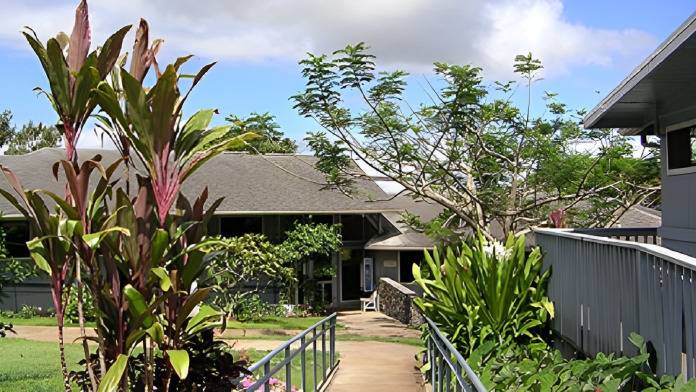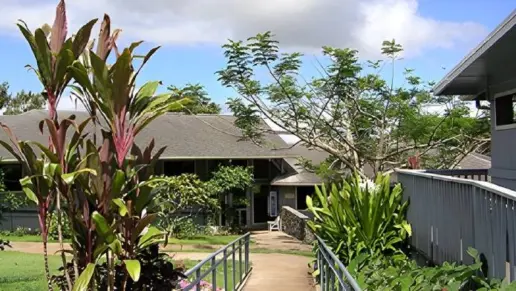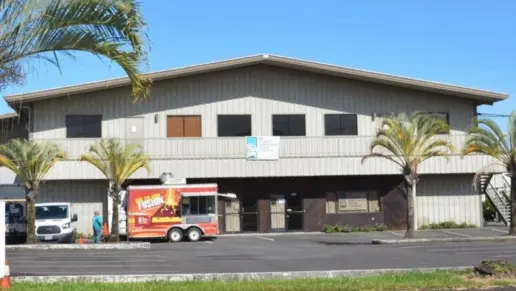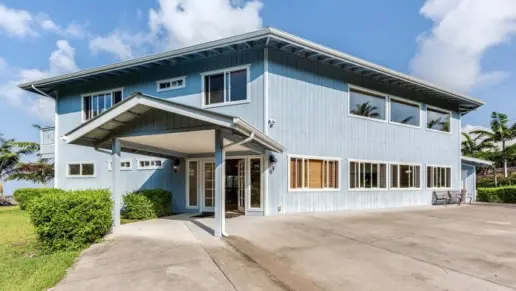I was treated wonderfully! Food was delicious and the staff extraordinary. Very beautiful place for recovery
About Aloha House
Aloha House, located in Makawao, Hawaii provides comprehensive, person-centered behavioral health interventions for the prevention and treatment of individual substance use disorder. Their programming ranges from detox to sober living homes.
Aloha House offers detox, residential, outpatient, and sober living.
Detox
The detox program at Aloha House is a medically monitored detox that is overseen by medical
staff. Medications are used to provide as much comfort as possible. By removing addictive
substances from the body, physical and mental stability can be achieved. This is often the first
step in recovery. Once the detox is complete, the next phase of treatment can begin.
Residential
Residential treatment is for individuals who need a high level of care and support at during the
initial phase of recovery. Through a highly controlled environment with structure, routine, and
rules, the focus becomes about learning the tools needed to live a substance free life. This
program helps individuals through clinical care models that include individual and group
therapy. Group classes are offered on a wide variety of subjects that related to addiction and
recovery.
Outpatient
Outpatient treatment is for those who are capable of receiving addiction treatment while also
maintaining their personal, work, and family responsibilities. This program is best-suited for
those who have graduated from the residential program or who are stable and do not need that
degree of care. Common treatment methods include individual and family counseling, along with
group counseling.
Sober Living
Sober living homes are for those who desire or need a safe and structured living environment
where they can keep working on their recovery in the company of others who are doing the
same. This is a crucial step for those who are not able to return to their home environment and
who need more time to regain the strength they need in order to move forward in life. Common
areas of focus in sober living homes are education, workforce readiness and employment, the
ability to handle life’s challenges while remaining sober.
Latest Reviews
Rehab Score
Gallery

Location
Other Forms of Payment
Self-pay involves paying for treatment out of your own pocket. You can use savings or credit, get a personal loan, or receive help from family and friends to fund your treatment. If you don't have insurance or your insurance plan doesn't cover a specific program, self-pay can help ensure you still get the care you need.
Private insurance refers to any kind of healthcare coverage that isn't from the state or federal government. This includes individual and family plans offered by an employer or purchased from the Insurance Marketplace. Every plan will have different requirements and out of pocket costs so be sure to get the full details before you start treatment.
Financial aid can take many forms. Centers may have grants or scholarships available to clients who meet eligibility requirements. Programs that receive SAMHSA grants may have financial aid available for those who need treatment as well. Grants and scholarships can help you pai for treatment without having to repay.
Addiction Treatments
Levels of Care
Treatments
The goal of treatment for alcoholism is abstinence. Those with poor social support, poor motivation, or psychiatric disorders tend to relapse within a few years of treatment. For these people, success is measured by longer periods of abstinence, reduced use of alcohol, better health, and improved social functioning. Recovery and Maintenance are usually based on 12 step programs and AA meetings.
Drug rehab in Hawaii is for individuals suffering from substance use disorders. Treatment addresses the many issues involved with addiction, typically through a combination of medical and psychotherapy treatments.
Many of those suffering from addiction also suffer from mental or emotional illnesses like schizophrenia, bipolar disorder, depression, or anxiety disorders. Rehab and other substance abuse facilities treating those with a dual diagnosis or co-occurring disorder administer psychiatric treatment to address the person's mental health issue in addition to drug and alcohol rehabilitation.
A combined mental health and substance abuse rehab has the staff and resources available to handle individuals with both mental health and substance abuse issues. It can be challenging to determine where a specific symptom stems from (a mental health issue or an issue related to substance abuse), so mental health and substance abuse professionals are helpful in detangling symptoms and keeping treatment on track.
Opioid rehabs specialize in supporting those recovering from opioid addiction. They treat those suffering from addiction to illegal opioids like heroin, as well as prescription drugs like oxycodone. These centers typically combine both physical as well as mental and emotional support to help stop addiction. Physical support often includes medical detox and subsequent medical support (including medication), and mental support includes in-depth therapy to address the underlying causes of addiction.
Programs


Clinical Services
Cognitive Behavioral Therapy (CBT) is a therapy modality that focuses on the relationship between one's thoughts, feelings, and behaviors. It is used to establish and allow for healthy responses to thoughts and feelings (instead of unhealthy responses, like using drugs or alcohol). CBT has been proven effective for recovering addicts of all kinds, and is used to strengthen a patient's own self-awareness and ability to self-regulate. CBT allows individuals to monitor their own emotional state, become more adept at communicating with others, and manage stress without needing to engage in substance abuse.
Whether a marriage or other committed relationship, an intimate partnership is one of the most important aspects of a person's life. Drug and alcohol addiction affects both members of a couple in deep and meaningful ways, as does rehab and recovery. Couples therapy and other couples-focused treatment programs are significant parts of exploring triggers of addiction, as well as learning how to build healthy patterns to support ongoing sobriety.
Experiential therapy is a form of therapy in which clients are encouraged to surface and work through subconscious issues by engaging in real-time experiences. Experiential therapy departs from traditional talk therapy by involving the body, and having clients engage in activities, movements, and physical and emotional expression. This can involve role-play or using props (which can include other people). Experiential therapy can help people process trauma, memories, and emotion quickly, deeply, and in a lasting fashion, leading to substantial and impactful healing.
They strongly believe that family involvement can be imperative to a “successful treatment experience,” so clients are encouraged to allow family members to play an active role. This can only happen, however, once a client signs the necessary confidentiality release forms. If a client wishes to have family involved in the treatment process, he/she still retains confidentiality rights — clients know that issues that surface in treatment will not be discussed with their family unless he/she provides prior approval.
Group therapy is any therapeutic work that happens in a group (not one-on-one). There are a number of different group therapy modalities, including support groups, experiential therapy, psycho-education, and more. Group therapy involves treatment as well as processing interaction between group members.
In individual therapy, a patient meets one-on-one with a trained psychologist or counselor. Therapy is a pivotal part of effective substance abuse treatment, as it often covers root causes of addiction, including challenges faced by the patient in their social, family, and work/school life.
Life skills trainings involve all the skills a person must have in order to function successfully in the world. These include time management, career guidance, money management, and effective communication. Truly successful addiction recovery is based on the ability to not only live substance-free, but to thrive. Life skills teaches the practical necessities of functioning in society, which sets clients up for success in life, and therefore sobriety.
Amenities
-
Private Setting
-
Private Rooms
Accreditations

The Commission on Accreditation of Rehabilitation Facilities (CARF) is a non-profit organization that specifically accredits rehab organizations. Founded in 1966, CARF's, mission is to help service providers like rehab facilities maintain high standards of care.
CARF Accreditation: Yes
Contact Information
200 Ike Drive
Makawao, HI 96768


